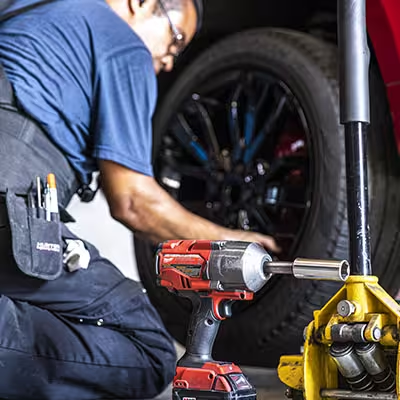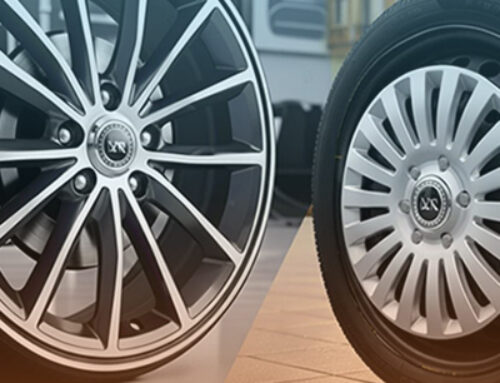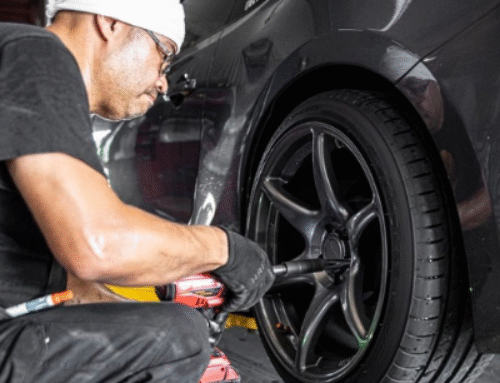Should You Really Rotate Your Tires?
Tire rotation is one of those maintenance tasks that might seem minor, but it plays a critical role in keeping your vehicle running smoothly and safely, we will explore why rotating your tires is essential, how often you should do it, and the benefits it provides. Let’s dive into whether or not tire rotation is truly necessary for your vehicle.
What is Tire Rotation?
Tire rotation involves moving your tires to different positions on your vehicle, typically front to back or side to side. The goal is to ensure even wear on all four tires. Depending on whether your vehicle is front-wheel, rear-wheel, or all-wheel drive, different tires experience varying levels of stress and wear. For example, front tires on a front-wheel-drive vehicle will wear faster due to handling the majority of the braking and steering.
Why Is Tire Rotation Important?
- Prolongs Tire Life
Uneven tire wear is inevitable if you don’t rotate your tires. Regularly rotating them spreads the wear evenly across all four tires, significantly prolonging their lifespan. In a front-wheel-drive car, the front tires bear more stress and wear out faster. By rotating your tires, you distribute the wear, ensuring they last longer. - Improves Safety and Performance
When tires wear unevenly, it affects handling and braking performance. Even tread wear keeps your vehicle balanced, improves cornering, and ensures better road grip. Skipping tire rotation could compromise your safety by increasing the risk of blowouts or accidents caused by poor handling. - Maintains Fuel Efficiency
Unevenly worn tires create more friction with the road, forcing your engine to work harder and consume more fuel. By regularly rotating your tires, you minimize this friction, improve fuel efficiency, and save money at the pump. - Protects Your Suspension
Vibrations from uneven tire wear can cause unnecessary strain on your suspension system. By rotating your tires, you help your suspension work more efficiently, preventing premature wear and reducing the risk of costly repairs. - Ensures Warranty Compliance
Many tire manufacturers require regular tire rotations to keep your warranty valid. If you neglect this essential maintenance, you could lose out on warranty protection. Regular rotations ensure that you stay within the terms of your tire warranty, safeguarding your investment.
How Often Should You Rotate Your Tires?
A good rule of thumb is to rotate your tires every 5,000 to 7,500 miles. Many drivers schedule tire rotations at the same time as oil changes. However, it’s important to check your vehicle’s owner manual for specific recommendations based on your car’s make and model.
Different Tire Rotation Patterns
The ideal rotation pattern for your vehicle depends on factors such as the drive type (front, rear, or all-wheel drive) and whether your tires are directional or non-directional. Here are some common patterns:
- Forward Cross: For front-wheel-drive vehicles, front tires move to the rear, and rear tires cross to the front.
- Rearward Cross: For rear-wheel-drive vehicles, rear tires move to the front, and front tires cross to the rear.
- X-Pattern: This involves crisscrossing all four tires, and it works for both front and rear-wheel-drive vehicles.
When Should You Not Rotate Tires?
Certain situations make tire rotation unnecessary or inappropriate:
- Directional Tires: Some tires are designed to rotate in only one direction. Rotating them incorrectly could negatively impact performance.
- Staggered Wheels: If your vehicle has larger wheels on one axle than the other, you won’t be able to rotate the tires front to back.
Should You Really Rotate Your Tires?
Absolutely! Regular tire rotation is an essential part of vehicle maintenance. It not only prolongs the life of your tires but also improves safety, enhances performance, and helps you save on fuel and repairs. Skipping tire rotation could lead to uneven wear, reduced performance, and potential safety risks. To get the most out of your tires, make sure to rotate them on schedule.
If you’re unsure about the right rotation pattern or schedule for your car, consult a professional or check your owner’s manual. Proper tire care will not only keep you safe but also protect your investment in the long run.
Make sure you don’t wait too long to rotate your tires. It’s a small step that brings big benefits to your driving experience.






